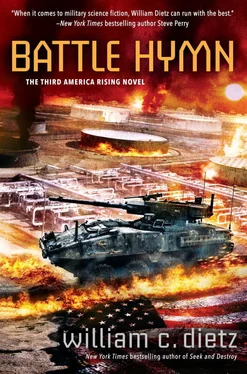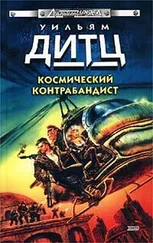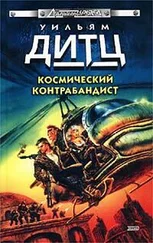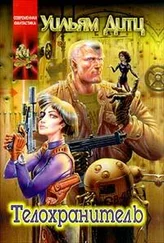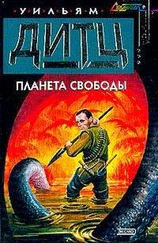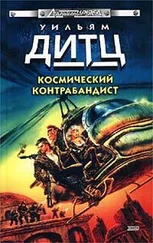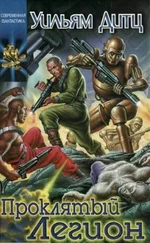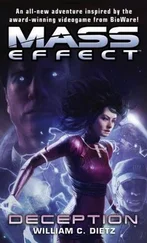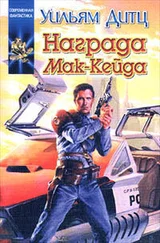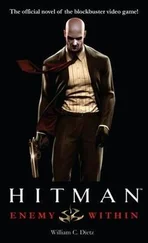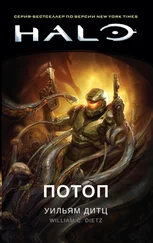Meanwhile, Yang was aiming forward, waiting for the Apache to appear in his sights. Once it did, Yang sent a long, uninterrupted flow of .50 caliber shells after it. Mac heard a celebratory whoop of joy as the helicopter’s port engine belched fire. The pilot banked out over the surrounding swamp before scooting away. One engine was sufficient to get him home… But his part of the fight was over.
Mac had just started to relax when Yang spoke. “Uh-oh… A couple of vehicles are coming up fast. They look like Strykers. Over.”
Mac felt a rising sense of hopelessness. Strykers. They could, and they would, grease the Humvees in a matter of minutes. She glanced at her watch. Help was supposed to arrive in ten minutes—which meant it was five away. Could the Humvees outrun their pursuers? No. The Strykers were faster. Okay, so maybe…
That was when Mac heard a loud explosion. She couldn’t see out the back, but Carter confirmed her worst fears. “It’s gone,” the TC said, as a fireball appeared in both outside mirrors. “I’ll take evasive action.”
Mac struggled to absorb it. Ryson, Lyle, and Yang. All of them were dead. And the rest of the team was going to wind up KIA, too, if help didn’t arrive soon. “The first Stryker is catching up with us,” Carter announced as she swerved to the right. “And my foot is all the way to the floor.”
“I don’t understand,” Ramos put in. “Don’t they realize that I’m in the vehicle?”
“Oh, they realize it all right,” Mac replied. “The rebs would rather kill you than allow you to be questioned. But they can’t murder you in front of your troops. Think about that if you’re still alive at this time tomorrow.”
“ General Macintyre,” Ramos responded. “That sounds like something he would do.”
“It sure as hell does,” Mac agreed.
There was a burst of static from Hunt’s radio. “This is Super-Spooky-Three to Bravo-Six. We are on station and ready to perform some pest control. I see three vehicles. I want all friendlies to turn their lights off and on. Over.”
Mac understood. The AC-130 pilot needed to confirm which vehicles he was supposed to protect. Carter said, “Done.” And the pilot confirmed it.
“One vehicle, and it’s in the lead. Stand by. Over.”
Mac couldn’t see it but knew that the Lockheed AC-130 fixed-wing, propeller-driven transport was a flying weapons platform. There were a lot of different versions, but even the oldest planes mounted a fearsome array of miniguns. Four of each in some cases. “Come on!” Carter demanded. “What are you waiting for?”
The lead Stryker fired. The 105mm shell screamed past, and a bright flash lit the road up ahead. Then, as if in answer to Carter’s request, the AC-130 opened fire. Four streams of tracer fire poured out of the pitch-black sky, converged on the lead Stryker, and tore into it. Mac couldn’t see the action… But she heard the thunderous explosion as the vehicle behind them exploded.
“One down,” Super-Spooky said, “and one to go. Over.”
Strykers had no effective means to defend themselves against aircraft. Something Mac knew from personal experience. So it took the AC-130 less than a minute to score the second kill. “Your six is clean,” Super-Spooky announced. “We’ll escort you in. Over.”
It took fifteen minutes to finish crossing the Atchafalaya Basin Bridge and pass through the Union checkpoint located just west of Ramah. It was defended with troops and tanks. But because they had been ordered to clear the way for the Humvee, the concrete barriers had been pushed over to one side of the road.
Pole-mounted lamps threw an eerie glow over the scene. As the Humvee rolled through the checkpoint, Mac saw that clusters of soldiers were standing at attention while their officers saluted. All of them knew. Ten soldiers and sailors had gone out. Four had returned.
From there it was a short drive to the Tiger Truck Stop, where a Black Hawk helicopter and three black-clad men were waiting in the otherwise empty parking lot. One of the operatives gave Lyle’s TAC vest to Mac. “The general won’t need this where he’s going. I’m sorry you lost so many people.” Then the agents took Ramos away. The helicopter departed three minutes later. The team watched it go.
“What now?” Carter inquired, as the noise died away.
Mac looked across the parking lot to the truck stop’s brightly lit façade. “Now we go in and eat breakfast. Does beer go with pancakes?”
“Beer goes with everything,” Wynn assured her.
“Good,” Mac replied. “Then we’ll have a beer for every person we left behind.”
“They’d like that,” Carter said.
“Kingpin is calling,” Hunt said as she pressed a headphone to her ear.
“Turn the radio off,” Mac said. “This mission is over.”
NEW ORLEANS, LOUISIANA
The sun was rising in the east. But there was no way to see that from hundreds of feet underground in the Situation Room South. Sloan had just returned from a two-hour nap… It was the only sleep he’d had in more than a day. As Sloan scanned the faces around him, he could tell that things had gone from bad to worse. “Give it to me straight,” Sloan said, as Doyle Besom poured him a cup of coffee. “What kind of condition is our condition in?”
“Hurricane Whitney is packing winds of up to 145 miles per hour,” FEMA Administrator Nathan Freely said. “That makes it a class four storm. The eye is 130 miles out, and it’s going to hit New Orleans hard.”
Sloan took a sip of coffee. “Will the gates and levees hold?”
“We hope so,” Freely replied. “A lot of improvements have been made since Katrina. But there’s bound to be some flooding. And the locals are going to suffer.”
Sloan was under no illusions where the locals were concerned. A lot of them were Confederate sympathizers if not outright insurrectionists. And their activities were a continual drain on Union resources. But they were, like it or not, American citizens. And it was Sloan’s duty to assist them to the extent he could. Even if they were unlikely to thank him for it.
On the other hand, Sloan reflected, Hurricane Whitney would buy him some time. The enemy wasn’t likely to attack during a major storm. The thought prompted a memory. Something he’d read about. A war in Korea? Or was it Japan?
Sloan put the coffee mug down. “I need to borrow a computer. One with Internet access.” It didn’t take long to find what he was looking for. All Sloan had to do was enter the words “Divine Wind” in the search bar. What he found was inspiring.
The First Mongol Invasion of Japan took place in the autumn of 1274, when approximately six hundred vessels, loaded with forty thousand Chinese and Korean warriors, arrived on the shores of Hakata Bay. The Mongols attacked, and the Japanese had to pull back.
Fearing that the Japanese would return with reinforcements, the Mongols retreated to their ships. A typhoon struck that night, destroying most of the ships and killing thousands of Mongol warriors. That battle was over, but the Mongols were still determined to conquer Japan.
During the next seven years, the Japanese built high walls to protect themselves from future attacks. And a good thing, too. Because when the Mongols returned, they had forty-four hundred ships and as many as 140,000 soldiers.
But thanks to the recently constructed walls, the Mongols couldn’t land where they wanted to and spent months on their ships—before deciding to go ashore. But on August 15, as the Mongols prepared to attack, a powerful typhoon struck, saving the Japanese yet again! A divine wind indeed.
Sloan stood and took another look around. General Jones was nowhere to be seen. Major McKinney was present, however. “Sam, find General Jones. Tell him to get ready. The moment the storm hits, we’re going to attack.”
Читать дальше
